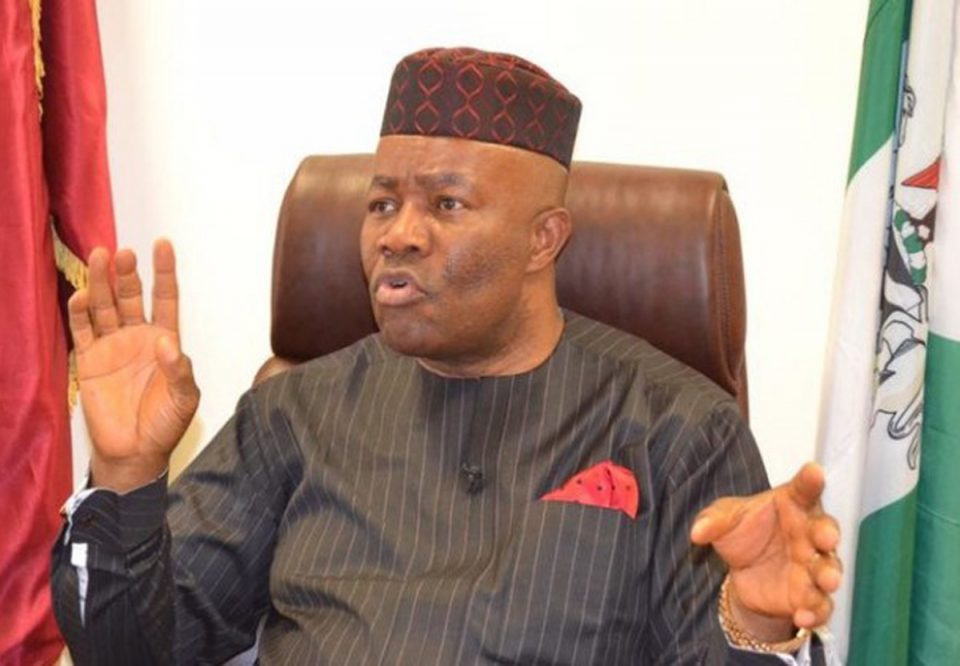- NIMASA, Customs move to ensure fast delivery of deep blue project assets
Stakeholders in the maritime industry have said for Nigeria to tap into the $296 billion and 49 million jobs being generated by the blue economy, it must urgently utilise all the potential resources of the oceans, seas, rivers and lakes for socio-economic emancipation and sustainable development of Nigerians.
This was stated during the third yearly symposium of the African Marine Environment Sustainability Initiative (AFMESI) with the theme “African blue economy which way to go?” held in Lagos.
The Minister of Niger Delta Affairs, Godswill Akpabio, said despite the potential benefits and opportunities associated with the aquatic resources, neglect, as well as climate change and extreme weather situations, have put the resources of the oceans and inland waters under serious threats.
The Minister who was represented by the Permanent Secretary Niger Delta Affairs, Dr. Babayo Ardo, noted that it was important, Nigeria and other member states of the African Union (AU) play their various roles and contributions to the development of the blue economy.
He explained that currently, the blue economy initiative is on the front burner as a result of its huge gains in the area of job creation and socio-economic development, as it is projected to generate about $296 billion with 49 million jobs.
He further informed that by 2030 the figures would be $405 billion with 57 million jobs, while in 2063, estimates would be $576 billion of value created and 78 million of jobs.
Akpabio stated that the ministry will initiate the move to drive the process and work towards the development of the bio-economy strategic framework for the Niger Delta Region.
On her part, the Minister of State for Transportation, Gbemisola Saraki noted that the continent is at a crossroads on the urgent need to level up at the international stage on best trends and practices to beneficially adapt in the emerging and lucrative economy while keeping her oceans, seas and the entire marine ecosystem safe, healthy and sustainable.
Saraki, who was represented by a Deputy Director at the Ministry of Transportation, Ofie Adams, said the blue economy is relevant to all countries and can be applied on various scales from local, national to global levels.
She explained that countries of the African Continent, including Nigeria, are not only integral parts of the entire world marine ecosystem but surely an important component at that.
The Minister further informed that 38 of Africa 54 countries are coastal with six islands whose combined maritime industry is estimated to be worth $1 trillion per year.
The minister, however, said to achieve the potential actionable policies formulated by African experts, governments and other stakeholders must be founded on a trusted and diversified knowledge base supported and complemented with management and development of resources that help inspire and support innovation to achieve a deserved lead position in the blue economy.
She also noted that residual negative impact of environment and ecosystems degradation for human progress, development and economic activities associated with its livelihood and survival must now be carried out without endangering or destroying the ecosystem of its own environment
Saraki further urged that the role of science and technology experts in the formulation of policies at leadership positions must be given a place and must not be jeopardised by the perennial religious, socio-cultural and political considerations.
President AFMESI, Dr Felicia Mogo, said political participation is a key factor towards realisation of marine sustainability and a sustainable blue economy paradigm.
According to her, AFMESI is seeking implementation of measures to secure the Gulf of Guinea, inter-regional cooperation and the role of science in governing the ocean, amongst others.
She said there is a need to write all the resolutions and appropriate implementation tools to the benefits of coastal boundaries and their landlocked neighbours across Africa, thereby pointing at the growth that not just considers only economic benefits but that starts on social accountability and ensures inclusiveness in calculating Gross Domestic Product (GDP).
MEANWHILE, the Nigerian Maritime Administration and Safety Agency (NIMASA) and the Nigerian Customs Service (NCS) have agreed on modalities for seamless and timely delivery of the Deep Blue Project assets currently at the ports.
The agreement was reached in a meeting between the Director-General of NIMASA, Dr. Bashir Jamoh and Comptroller General of the Nigerian Customs Service, Hameed Ali in Abuja.
According to the Customs boss, due to the peculiarities of the urgent need of these assets, there is a need to find a common ground that would assist in their full deployment.
While appreciating the Comptroller General for the efforts to clear the Deep Blue Project assets still at the ports, Jamoh urged the Customs to share information and capacity with NIMASA to ensure successful implementation of the deep blue project.
The NIMASA boss also raised the issue of the Modular Floating Dock, which he described as a public asset to be managed by the Infrastructure Concession Regulatory Commission (ICRC).




